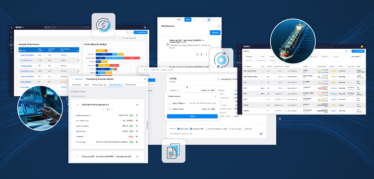A critical ingredient to any organization’s ability to develop and grow successfully is ready access to knowledge.
As technology develops, businesses can choose from an ever-expanding range of specialized tools and systems to help them run specific areas of their business more efficiently. This offers huge benefits for growing business – it’s not practical to acquire domain expertise in every area of a large business and therefore necessary to tap into specialized knowledge sources to inform better decision making.
The problem that many businesses run into, however, is pulling this knowledge together from multiple sources to get the whole picture. This is where data integration comes in.
APIs, or application program interfaces, are the means by which two different applications or systems communicate and share capabilities. Like the Web, which unlocked the Internet’s potential, APIs are driving a new wave of innovation around sharing services. By utilizing APIs to build a comprehensive digital ecosystem made up of best-of-breed components, forward-thinking businesses can innovate at a faster pace, reduce barriers to change, and offer better products and services that out-perform the competition. The potential of APIs to transform business processes has caught the attention of organizations across all industries, including commercial maritime.
Benefits of Integrating Maritime Workflows
From pre-fixture through to post-voyage, it is critical for maritime organizations to maintain real-time visibility into all internal operations as well as external counterparty dealings, market movements, weather, and more. In order to efficiently understand how all these elements interplay and effect each other, they must be connected, aggregated and analyzed by the organization to create a single source of truth.
Through APIs, maritime organizations can create mutual connections between internal and external systems and counterparties – be it their corporate accounting system, ETRM/CTRM system, agents, data providers, document management tools, and more. These connections vastly expand access to high value, business-critical data, which enhances the ability to accurately track, manage, and report on business operations. In addition, continuous access to multiple data sources enables organizations to accomplish more, with greater accuracy, and in less time by cutting out duplicate manual data entry.
Integrating siloed data sources into a dynamic technology ecosystem enables maritime organizations not just to enhance their operational efficiency, but also to maintain the flexibility to incorporate new and innovative capabilities as they become available.
Open Integration with IMOS
For hundreds of the industry’s leading maritime organizations, the Veson IMOS Platform is at the core of their technology ecosystem. VIP enables full solution extensibility, allowing you to manage all relevant information within one centralized workspace. With over 80% of Veson Nautical clients integrating with external systems, VIP provides a truly open and secure platform for transformative connectivity, efficiency, and continuous innovation.



 Jesse Dilanni
Jesse Dilanni
 Russ Hubbard
Russ Hubbard
 Josh Luby
Josh Luby